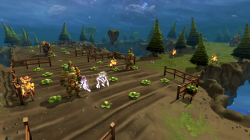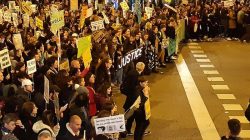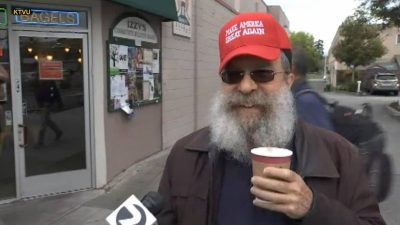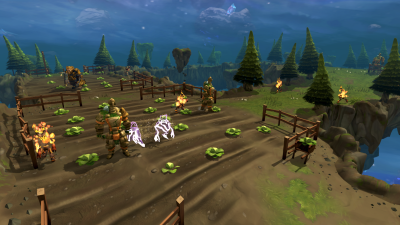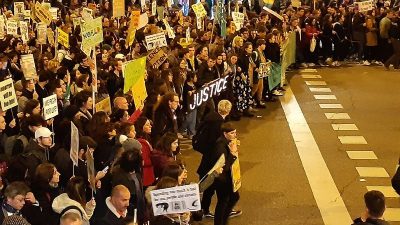The Kuka Bulukiya cemetery, believed to be over 500 years old, is one of the oldest and most revered burial grounds in Kano. It has served generations, receiving corpses from various neighbourhoods and even far-flung communities.
Strategically located in the heart of the Kano metropolis, the cemetery is surrounded by quarters such as Dala, Madabo, Yalwa, Kwanar Taya and Gwammaja. Corpses are also brought from neighbouring communities like Gwauron Dutse, Kulkul, Dogon Nama, Madigawa, Sanka and Makafin Dala.
Historically, the cemetery got its name from a large baobab tree (kuka) known as Bulukiya, located at its centre. Local lore holds that even Sheikh Usman Dan Fodio, the founder of the Sokoto Caliphate, once visited the cemetery and prayed under the tree.
In more recent history, the late Alhaji Muhammadu Adamu Dankabo, founder of the defunct Kabo Air, personally funded the construction of the cemetery’s perimeter fence more than 25 years ago. He was later buried there himself.
Once revered, now troubled
Despite its deep historical and cultural significance, parts of the Kuka Bulukiya cemetery have recently become a haven for criminals. Thugs now lurk around its premises, targeting mourners and passersby to rob them of phones, money and other valuables.
During a visit to the cemetery, our reporter observed that a significant portion of the metal fittings on the cemetery fence had been stripped away – allegedly by these same criminals. Even the metallic coffin plates, which bear the names and dates of the deceased, are not spared.
Speaking about his experience, a resident of Kwanar Taya, one of the areas neighbouring the cemetery, Umar Abubakar, said they recently chased a gang of phone snatchers and thugs who hid in the cemetery.
He explained that he, alongside other residents, have since stopped passing by the cemetery’s fence linking it the historic Dala hill, one of the most iconic monuments in Kano, for fear of being attacked.
Abubakar said, ‘Just recently, some group of phone snatchers struck in our area but we fought them back. When they realized that we could overpower them, they ran away. But surprisingly, they took cover in the cemetery since it was late in the evening.
‘We had to leave them since we don’t know what they hid in there.
‘As I speak to you, the road linking our area with Dala hill which is beside the cemetery fence has since been deserted by passersby and even bike riders. They can stop you and seize anything you carry, including your vehicle, it is just unfortunate that what is supposed to be ultimate in remembering God is now being converted to thugs’ haven,’ Abubakar lamented.
Another resident Aliyu Baballe, who lives around the neighbourhood, said they have had cases of snatching not just phones but bicycles and motorcycles close to the cemetery.
‘The truth is that nobody wants to pass this place in the night or even in broad light when the sun scorches. Chances are that thugs will stop you and rob you,’ Baballe explained.
He then called on the relevant security agencies to consider siting a facility close to the place to help them curtail the trend.
Gravediggers speak out
One of the gravediggers, who requested anonymity, described the worsening security situation as dire.
‘The thugs usually strike when the roads are less busy – under the hot sun, at night, or in the early morning,’ he said. ‘They snatch anything – phones, money, even a motorcycle was taken once. Their most active area is around the Kwanar Taya side of the cemetery.’
He added that many metal parts from the cemetery fence and even coffin plates have been stolen and sold as scrap.
According to him, there are about 31 gravediggers working in the cemetery, but only 16 receive monthly stipends from Dala Local Government – and even that payment has been delayed for four months.
‘We survive mostly on charity from mourners. When people come to bury their loved ones, they give us voluntary contributions, which we share among ourselves,’ he explained.
‘They Stole a Bicycle from an Orphan’
Another gravedigger recounted a particularly heartbreaking incident:
‘One day, an orphan came to pray at his mother’s grave. The thugs took his bicycle and left him crying at the tomb,’ he said.
He also described a terrifying encounter:
‘I once arrived in the morning and saw a thug hiding behind a tree between graves with a cutlass. He threatened me to leave because they had a ‘mission’. I had no weapon, so I left.’
The gravediggers noted that while the thugs rarely attack them directly, they prey mostly on unsuspecting visitors.
‘I’ve Been Digging Graves for Over 40 Years’ – Malam Garba
Malam Garba Sa’adu, Chairman of the cemetery’s gravediggers, has worked there for more than four decades. He described the situation as disturbing.
‘These criminals have no fear of Allah,’ he said. However, he noted that recent community efforts and the activities of vigilante groups have helped reduce the number of incidents.
Garba also appealed for donations of sand and gravel to help repair collapsed graves, especially during the rainy season. He urged government and wealthy individuals to support the gravediggers, many of whom rely solely on this work for survival.
N5,000 allowance
The gravediggers said their allowance – a mere N5,000 per month – has not been paid for four months.
‘It’s unfair,’ said Malam Garba. ‘Someone who has spent 40 years serving the community shouldn’t be neglected like this.’
Another gravedigger mentioned that they recently met with Dala Local Government officials, who promised to review their monthly allowance to N10,000. However, implementation has yet to begin.
Efforts to get a response from the local government were unsuccessful. When our reporter visited the secretariat in Gwammaja, the Director of Personnel Management, Dauda Shehu Zakirai, was not available. Repeated calls and messages went unanswered at the time of filing this report.
Alhaji Ado Kurawa, Chairman of the Kano State Cemeteries Committee and District Head of Fagge, said the criminals are not outsiders, but residents of the communities surrounding the cemetery.
‘These thugs live among us. The communities know them. They should form committees and take responsibility for their own security,’ he said.
On the issue of unpaid allowances, Kurawa argued that gravedigging is a voluntary service, not a salaried job.
‘In the past, it was the duty of the deceased’s family and neighbours to handle burial preparations. These gravediggers chose to volunteer, and now they expect charity as entitlement,’ he said.
Kurawa also urged politicians and philanthropists to consult with the committee before initiating projects in cemeteries to ensure that real needs are addressed.
Provided by SyndiGate Media Inc. (
Syndigate.info
).




